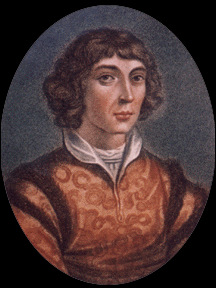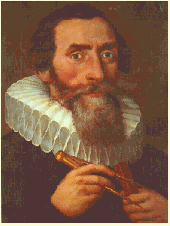
Copernicus

Kepler

Galileo

Newton
| Mathematics |
If . . . there is any truth in the belief of the old Greek philosophers and of some modern historians that the study of mathematics has its origin in the observed movements of the stars . . . [is] it too fanciful to picture to ourselves how, drawn into the minds of a few men, the relative positions and movements of the stars gradually developed a more independent life there until, with the rise in Europe first of trigonometry and then of algebra, they detached themselves from the outside world altogether. And then by a few great men like Copernicus, Kepler, Galileo, Newton, these abstract mathematics were refitted to the stars which had given them birth and the result was that cosmogony of infinite spaces and a tiny earth in which our imaginations roam today? When the Aryan imagination had succeeded in so detaching its "ideas" about the phenomena of the universe that these could be "played with," as mathematicians say, in the form of an equation, then, no doubt, it was a fairly easy matter to turn them inside out. (142-43)
| See in particular "Experiment" (HEW 139-55), "Ideas, Methods, Laws" (WCT 115-30). |